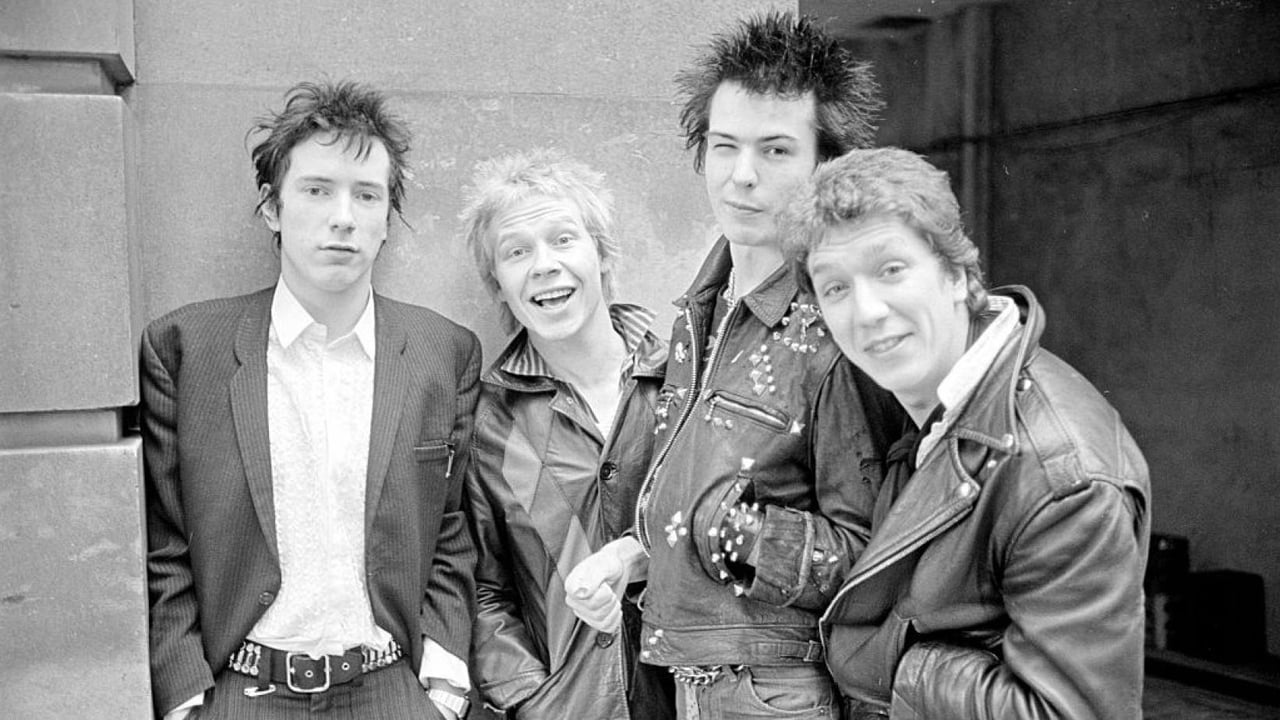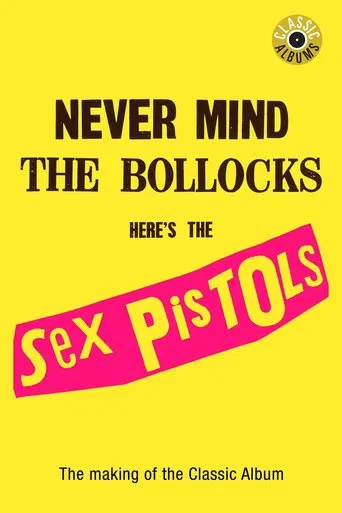Sarita Rafferty
There are moments that feel comical, some horrific, and some downright inspiring but the tonal shifts hardly matter as the end results come to a film that's perfect for this time.
geraldkeaney
(I have to mispell a certain word to publish here) This movie argues for an old idea about punk, namely that there is a lot of hype around what was at best just tight professional rock and roll. And who better to tell us all about it than The Sex Pistols? The professional musicianship of The 'Pistols and associated players is therefore the primary concern. And indeed The 'Pistols sound incredible. In Never Mind… we find naturals who just had to get the hang of it.But how convincing is this, and is it a key issue? These people only ever showed themselves capable of playing simple music, and what they did afterwards was quite often bolllocks (most PiL is clearly brilliant, however). Manager Malcom McClaren made the 'Pistols practice hard (something omitted from Never Mind…). The real point then involves context. Instead of working in some shitty job The 'Pistols and other punk bands of the era formed a scene focused on being creative. With a lot of time on their hands and no doubt some innate rhythm, yep, they got good at playing crude material. This appealed as an effective challenge to the deadbeat assumption that the second half of the 20th century was a promised land people should be satisfied to inhabit. Go to discos, be thankful you're not starving in Japan.Never Mind… does not see the movement in these terms. It implies one reason guitarist Steve Jones musical genius remained unrecognized was because he burnt his bridges during the infamous Grundy incident. Jones abused popular TV host Grundy on Grundy's show in front of millions of viewers. For this he is now truly contrite, and for the film the incident is the kind of bolllocks that should have been long-forgotten. Again, neither convincing nor to the point. The infamy hardly interfered with Jones' career; others involved in the abuse like Johnny Rotten (aka John Lydon) have never had too many industry difficulties. Why be contrite anyway? Jones was standing up for Siouxsie Sioux who Grundy had just sexually harassed on live TV (the harassment is another fact omitted in Never Mind…, cut from the Grundy interview scene). Grundy bated the Pistols and the Bromley Contingent, suggesting that the best they could come up with was swear words. In fact swear words were still a big deal, the back lash in the British papers the next day proved that. So Grundy falsely tried to put across the idea that there was nothing to rebel against. There is hypocrisy beneath Grundy's veneer. In private life Grundy might swear until the birds fall out of the trees, but on TV one has to pretend that one doesn't. This stultifying and dishonest idea of etiquette serves dubious ends. The Sex Pistols at least helped people think about the dishonesty involved, instead of unthinkingly accepting it. Behind respectability we find oppression. In the words of a later 'Pistols slogan "no one is innocent." Or as Marc Bolan said of the 'Pistols: "a violence of the mind."Grundy himself, though, is ambiguous, and it seems this is exactly to deflect the foregoing and fairly obvious criticism. Not only blasé about swearing and openly sleazy, he admitted to being a drunk during the interview. Here Grundy is implicitly claiming he has no holier-than-thou Mary Whitehouse-style pretensions. However the ambiguity does not flatter Grundy as much as he might have hoped. Against the 'Pistols at the time, and harassing Siouxsie Sioux, Grundy is just another older man with (media) power crassly using this against a young woman (performer). Even if, as is dubious despite his flagrant conduct, Grundy can avoid the hypocrisy inherent in his role as a TV presenter, he becomes the naked, instead of disguised and unquestioned, face of a dull restrictive spectacle.So instead of false contrition, a good dose of context let's us see what was really at stake. Steve Jones was part of a community of rebels that included creative, in-your-face women; he stood up for one of them just as that scene was about opposing later 20th century restrictions. (At least it was for a brief time.) The overall lack of context in Never Mind… can also be discerned in the lack of women in the film. Yes, The Pistols were a boy band, but Never Mind… discards documentation of a broader counter-culture challenging a staid, force-fed optimism.According to Never Mind other bolllocks obscuring talented rock and roll is the boat gig. The Sex Pistols played songs like the anti-monarchist number God Save the Queen on the Thames outside Buckingham Palace on the 25th anniversary of the coronation. They were promptly arrested. Again there is contrition, but don't hold your breath for that knighthood boys. One implausible claim in "Never Mind…" is that the 'Pistols didn't realize the Silver Jubilee was in full swing! This incidentally contradicts the "Never Mind…" claim that as straight-ahead musicians, the Pistols were also hard-headed business operators. The release of the God Save the Queen single was perfectly timed. But was even the cash the point, or is it more bolllocks? The 'Pistols rightfully blew the bucks straight away (a fact also omitted in Never Mind…). Lydon only developed his business acumen later, and then in property investment.Most of the omitted facts are found in other punk docos. There you will find The Pistols weren't just "top class" musicians playing tight rock and roll and settling into music professionalism, but part of a movement of people who were sick of contemporary society. The movement found an easy way to enjoy themselves, shaming that society by showing the degradation intrinsic to it. A more complex story certainly, but history, not bolllocks. Try for a start: The Filth and the Fury, The Great Rock and Roll Swindle, The Punk Movie and the incredible Jordan's Jubilee. - Gerald Keaney


